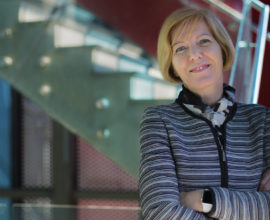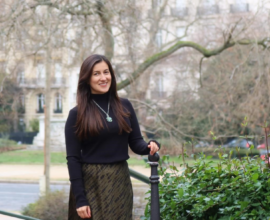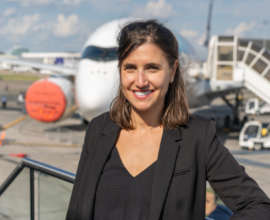Taghi Taghi-zada
Driven by the desire to learn and to put people first
![]() Reading Time: 11 minutes
Reading Time: 11 minutes
Co-Head of Global Physical Trading at SOCAR
At 36, Taghi has moved up the professional ladder with remarkable speed. At 21, when he was head of logistics for a firm specialising in luxury goods and design, the only theoretical next step up was to take his CEO’s place. The two of them had a no-holds-barred discussion after which they agreed that with Taghi’s potential, the CEO would support him in aiming even higher. Taghi subsequently secured a prestigious scholarship with the State Oil Company of Azerbaijan and Total to study at Audencia. By 25, he had studied – and graduated – on 3 different continents.
Just a few months before his 30th birthday this young Azeri, born and raised in Baku, relocated to Geneva to work for the trading branch of SOCAR, the State Oil Company of Azerbaijan Republic.
“I had never planned to work in the oil and gas industry – I come from a family of doctors and academics – but when you grow up in Baku, there’s always a little bit of oil running through your veins.”
In March 2021, Taghi was promoted to Co-Head of Global Physical Trading at SOCAR, a role which gives him responsibility for trading 1 million barrels of crude oil per day while managing teams of traders in offices in Geneva, London, Singapore, Dubai and Houston. Although he clocks up gruellingly long hours, Taghi still makes time to satisfy an enduring passion for football (much more about that later) and run a youth charity club in Azerbaijan. We speak to Taghi during his precious holiday time, back home in Baku with his family. During our conversation, we learn more about his ambitions for a greener future for his children and discover that his lasting love of France even led him to co-found Baku’s first crêperie with a fellow Audencia alum!
Tell us about your family background
My father was (and still is) an academic -a mathematician- and my mother is a paediatrician. When my sister and I were growing up in Baku, the house was constantly full of my father’s colleagues from across the world all speaking different languages. The richness and diversity of his colleagues’ backgrounds and the pervading intercultural atmosphere shaped my childhood and made for some fascinating dinnertime conversations. My parents instilled strong values into their children and we grew up believing that we should always strive to be good people.
I didn’t really have any specific memories of what I was like as a child, but since the birth of my first daughter, some of them have certainly floated back up to the surface. My older daughter is now 5 years old and whenever she is cheeky or misbehaves, my mother reminds me that she gets it from me. I think on the whole though I was quite a well-behaved child, but you’ll have to check with my mother on that one as she may say that I was a bit hard to handle! I do remember being quite studious at some point though and finding school lessons interesting. I definitely developed a thirst for learning which has never left me.
What are your memories from when the Republic of Azerbaijan became independent in 1991?
I was only 6 years old when the Soviet Union fell apart and the transition towards independence took place. As a young boy in 1991, I have a distinct memory of being in our living room with my parents physically protecting my sister and me as the Soviet army drove their tanks past our front door and shots were fired. It was a time of uncertainty, of alternating bouts of fear and optimism with differing experiences depending on the generation you belonged to. As the country lurched from border crisis to financial crisis and back, the value chains fell apart and everything had to be re-organised from logistics to social services and more. For purely economic reasons, my father held down several jobs at the same time just to support the family. We all had the task of reinventing ourselves, but we got through it.
How did your time in the USA have an impact on you?
In my early school days, I spent 6 weeks in the US on a programme that was filled with visits to big cities including New York and Philadelphia. This first experience inspired me to apply for the Future Leaders Exchange (FLEX) programme, a competitive, merit-based scholarship programme funded by the US Department of State. Although its initial philosophy was to enable young people from ex-Soviet countries to learn about the US by spending a year in America with a host family and attending a US high school, the programme still continues today. After multiple rounds of testing and interviews, I left Baku – population several million, to arrive in Mason City Iowa – population less than 30,000.
Apart from the lack of diversity that I had always been accustomed to back home (no-one in Mason City spoke anything else but English or had much international experience), the biggest surprise was the independence of my teenage American peers. They all had weekend jobs, did community service, paid their way through university and left home as soon as they were able to support themselves. In Azerbaijan, you tend to focus on your studies, live with your parents until you are ready to get married and look after your family first and foremost. Discovering this different approach to life definitely made its mark on me and was a huge game changer.
Although my American host mom has sadly passed away, I still have close ties with my host dad who even made the journey to visit us in Geneva in 2018.
What were the highlights of your experience at Audencia?
To be honest, and I’m not just saying this to flatter the School, it was one of the best years of my life! I was lucky to have applied for and obtained a full scholarship from a joint venture between SOCAR and Total and I arrived in Nantes full of curiosity about France in general and Nantes in particular.
It was reassuring having a fellow student from Azerbaijan on the programme too. We got our accommodation sorted together, explored Nantes together and by the end of the first month, we went halves on the cost of buying a car: a 1-litre, 2-door Opel Corsa. It was tiny but boy did we enjoy driving it. As football fans, we managed to drive to some great matches as far afield as Madrid! That little car did us proud and I’m sure that quite a few of my Audencia classmates will remember squeezing into the back to go places!
The structure of the programme at Audencia was a wake-up call in more ways than one. Back in Azerbaijan, I was used to having classes in the morning and spending the afternoon working on assignments and coursework. At Audencia, we had to be in class by 08.30 and only finished by about 18.00, it took a while getting used to! However, I would still say that the biggest take home of my year at Audencia was the value of teamwork. It may sound corny but being in a class with 13 or 14 nationalities was a real test of how interconnected you are or can become. We worked together, had fun together and created lasting relationships.
Tell us more about the crêperie venture!
I think I must have tasted crêpes from all the crêperies in Nantes. I discovered them in Nantes and developed a serious passion for them. When we had to write a business plan for our International Business class at Audencia, my classmate Nariman and I wrote one for setting up a crêperie back home. A few years after we returned to Azerbaijan, we really did open a crêperie in Baku and it was a success! We had 4 people working for us and we were not only the proprietors but (very) regular customers. The venture lasted for nearly 4 years until I was posted to Switzerland and Nariman to Turkey, but we were able to sell it on as a viable business.
How would your crêperie associate and former classmate describe you?
I think he would say that I am a good and trustworthy friend. He might also say that I have a tendency to be a bit pushy, but I hope that he would add that it’s in a balanced way and not to the detriment of anyone else. I guess that people generally see me as determined and quite driven and ambitious. I have often quoted a saying that if you can’t run towards your goal, you walk to it, and if you can’t walk then you crawl and if you can’t crawl then you lie with your head in that direction.
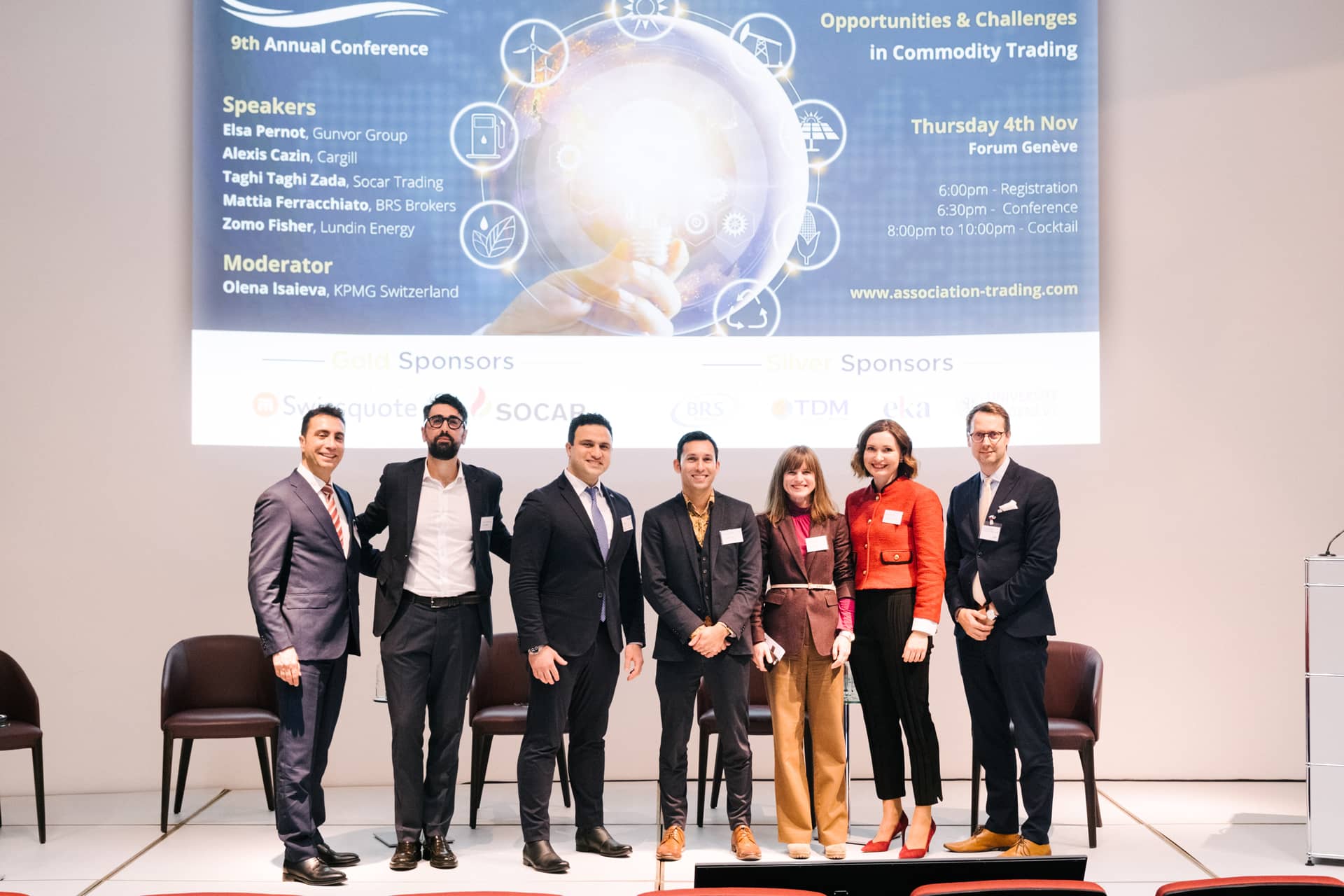
I think you have an interesting story about how you met your wife. Can you share it with us?
My wife doesn’t like me telling the whole story, but here it is… I met her at work. When I returned from the US exchange programme, I worked for a while with the team that recruited the future cohorts of scholarship students and my wife was one of them. This was just a coincidence and I had no romantic thoughts at the time because she was still in high school and I was already working. We met a couple of years later, but again, we barely acknowledged one another. Then, one day at work, my boss introduced me to our new colleague who was starting in the legal department and it was her! Our paths had already crossed several times but it was only when we became colleagues that we started dating. She is a fantastic person and my best friend; she definitely keeps me grounded and sane and I know I can always go to her for advice.
So, is football really all that important to you?
Football is an integral part of my life and perhaps, like oil, runs in my veins! I have played it, supported it and helped organise football-related events wherever I have been in the world. Back in 2003, with some school friends, we set up the Baku Fire Football Club and joined the national futsal league. We’re almost at the 20-year anniversary landmark and although I no longer play there, I’m honorary president of the club and our young players are winning some great competitions. During my time in the US, I was in the high school football (soccer!) team and this got me noticed, leading to several offers from American universities to join them although it wasn’t something I’d ever anticipated doing. For me, sport is about letting off extra energy, the team spirit and pure enjoyment.
One of my fondest football memories while I was at Audencia was going to a Nantes-Lyon match at La Beaujoire which Nantes won 2-1. I can still remember parts of that match more than 10 years later! In Geneva, my job is demanding, but there is always time for football. What more can I say? Football follows me around. My daughters are already armchair football fans and I manage to play football with them whenever we have a moment at home. My older daughter joins me if I’m watching a game on the TV, most recently during the European Cup.
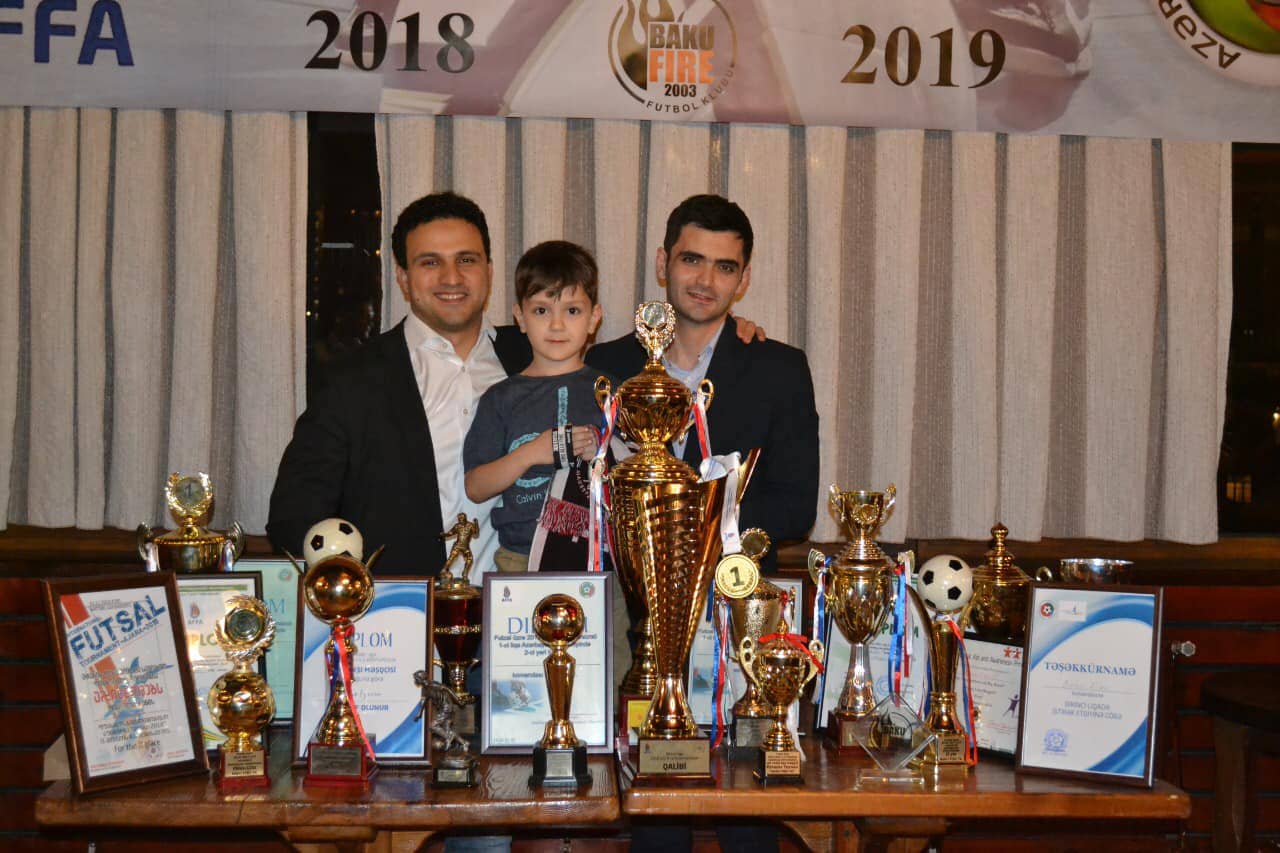
Being a trader, you must know what it’s like to work in a stressful environment. How do you manage stress?
Stress drains our life power and I realise that and try to approach it responsibly. I’m definitely not a stress junkie and it’s not something that I necessarily want to have as part of my daily working life. However, as you mentioned, the very nature of my role – trading – has a fairly stressful environment as part of the job description. You have to be ready to make the calls and accept responsibility for them. However, I always try to avoid stress levels that would affect my relationships with people. If I’m in a stressful situation, I try to do a helicopter view and stand back. I try to understand the moving parts and what has caused the stress and this helps me to calm down and deal with the situation better.
There’s a method I use from time to time when I go into an important meeting. I mentally box up anything stressful and make sure there’s time to deal with it after the meeting. This helps me to distance myself from the problem and free up the head space to deal with the meeting in real time. It works!
Your CEO is a woman; does she have a specific leadership style?
I’m glad you asked this question. Having grown up in a family where the women – my mother, aunts and grandmothers – have all without exception had successful careers, mainly in medicine and academia, it’s something that I haven’t ever questioned. Women got the vote in Azerbaijan over one hundred years ago – often before many European countries! My CEO, Mariam Almaszade, is one of the first women to run a large oil trading company and I’m definitely proud of that fact. She joined the company in 2018 when it was going through a turbulent period and is currently leading the company through the pandemic with some good decisions. She has the skills and personality to keep up with the dynamics of the energy trading environment, brings her fundamental previous experience to the table and has an analytical mind-set and a hands-on managerial approach.
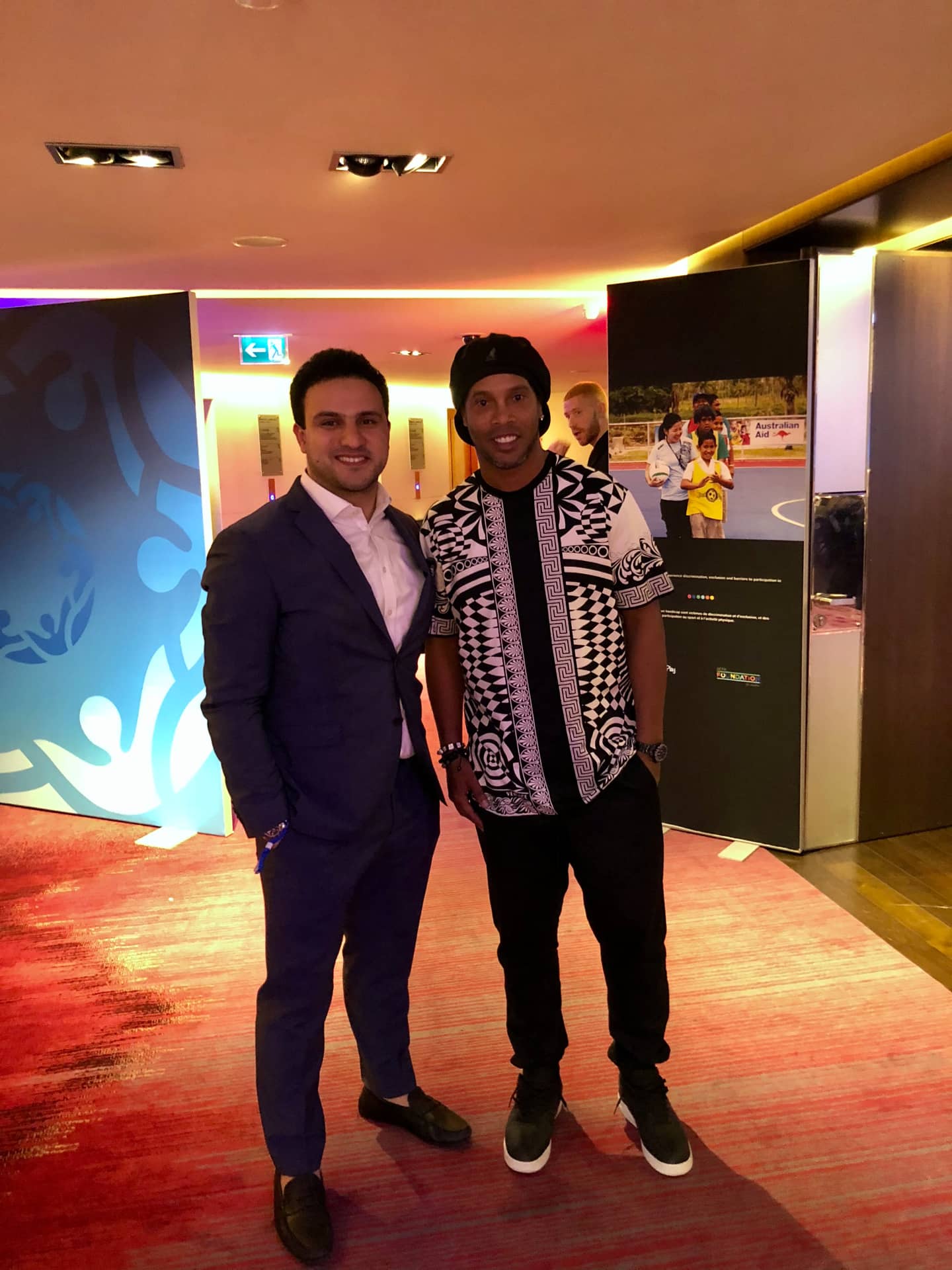
What about your own leadership style?
I think my leadership style is based on what I learnt myself from my managers, parents and professors. For me, the keys are education, learning new skills and gathering knowledge and I always encourage my teams to have that conversation with me. I also enjoy delegating and preparing people to do the job better than I can! The value I put on the table is helping people to choose the right paths and making it consistent with their career goals. I also think I’m good at building teams. Due to the nature of our business, I tend to approach things with a P&L mind-set so I find I can see the advantages of hiring new team members and am able to convince my bosses that this is the best way forwards.
It is no secret that the oil and gas industry is a target for climate campaigners. How do you react to these attacks and how do you see yourself having a positive impact?
I fully understand, accept and agree with the constructive criticisms but I also want to be part of the industry move from brown to green. The earth’s resources are becoming increasingly scarce and although things are starting to move in the right direction, our use of oil and gas is going to continue a while longer until we have a viable and lasting alternative. However, we are all aware that things must change and it’s not because I work in the oil and gas industry that I can’t have an impact. In fact, I hope I can contribute by instilling some changes from within. Oil companies and individuals must invest as much as they can in making sure this sector reduces its ecological footprint. The world has to become greener if we are to leave a decent legacy for our children and it mustn’t just be a bit of superficial greenwashing.
I am very involved in Climate Neutral Commodity (CNC), an independent Swiss business-led initiative supporting the global commodity industry in its transition to carbon-neutrality. I am a member of the advisory board and we have developed a process to measure and verify the offset greenhouse gas (GHG) emissions from production to delivery, or to end-use (covering the full commodity lifecycle). This is part of the way we can ensure that the industry makes a positive change.
Where do you see yourself in 5 years?
I hope that in 5 years I will still be bringing value to the company and the next generation of employees. I still feel that I have a huge amount to share and achieve. I definitely want to be part of the move towards a greener and more sustainable industry. As my children grow up, and understand my line of work, I hope they will, one day, be proud of the positive impact I have had. I definitely want to be able to look my daughters in the eye and tell them that I am striving for a greener planet. I also hope that in 5 years I will continue to maintain the work-life balance I enjoy today and still have time for extracurricular activities such as my work with the youth charity club back home in Baku.
What are you planning to do during your holiday?
Visit some of the many beautiful places in Azerbaijan and see our families!
Very unusually for a comparatively small country, Azerbaijan has nine different climate zones from semi-desert and dry steppe to alpine tundra and more in between. Each time we come back, my wife and I try to show our daughters as many different aspects of our home country as possible. We also spend time with parents and grand-parents to give the girls as much family time and cultural exposure as possible, and there’s a language aspect too. Our 5-year old is growing up in Geneva and her French is way better that her parents’. She sometimes even apologises for us when she thinks we don’t understand. In turn, we make sure she and her sister are exposed to as many different Azeri speakers as possible.
